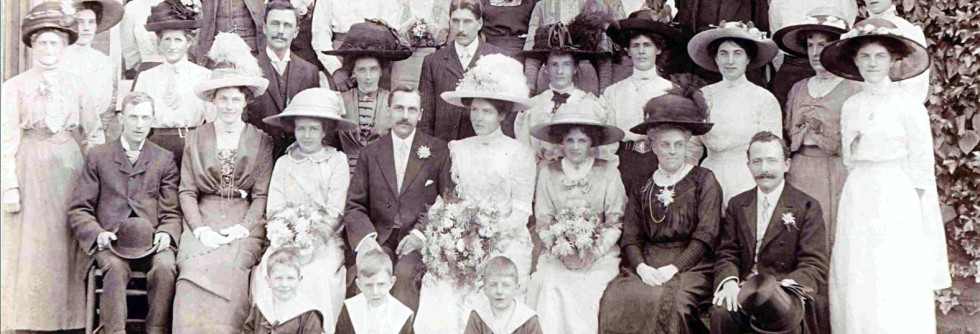Several years ago, I was told by a Persian friend that they find the English language lacking when it comes to the words we use for family members. For example, we use the word “uncle” to mean mother’s brother, father’s brother, or husband of either father’s sister or mother’s sister. Some languages, Persian being one of them, have different words for each of these “uncles”. I wanted to know more. Has English always been deficient in this regard? Which languages are rich in kinship terms? I did a little digging, and here is what I found.

Persian does indeed have a wider vocabulary of family relationship words. There are two words for “aunt”, depending on whether the woman in question is a mother’s sister or a father’s sister. Similarly for “uncle”. And for cousin, there are 8 different words, depending on whether the cousin is male/female, maternal/paternal, child of a male/female. To have words like that available for talking about all the Benjamin Clarkes in my family would be a godsend! And what about those families with 3 uncles all named John – mother’s brother John, father’s brother John, and mother’s sister’s husband John?

But even with its wealth of relationship words, Persian pales in comparison to Cantonese. Not only does Cantonese distinguish between mother’s siblings and father’s siblings, it distinguishes between mother’s older and younger siblings, and the same for father’s siblings. So, for instance, when speaking of a maternal aunt, there are different words for mother’s older sister, mother’s younger sister, and mother’s brother’s wife.
Albanian, Bengali, Bulgarian, Danish and Turkish all have different words for maternal and paternal aunts/uncles, too. I don’t know if they have the same wide vocabulary as Cantonese, but they have a greater number of kinship terms than English does.
I was interested to learn, though, that English used to have a broader selection of family relationship words. Old English used modrie or modrige for a maternal aunt. For paternal aunt the words were faðe or faðu. There were also different words for uncle, depending on whether the uncle was maternal or paternal.
That’s the end of my foray into kinship linguistics. For now.
Sources:
- Easy Persian. (2016) Persian Phrases 2. http://www.easypersian.com/persian-translation-2/ : accessed 13 April 2016.
- Ager, Simon. (2016) Omniglot: Kinship terms in Chinese languages. http://www.omniglot.com/language/kinship/chinese.htm : accessed 13 April 2016.
- Schwimmer, Brian. (2003) Old English Kinterms. https://goo.gl/d2Y0l4 : accessed 13 April 2016.
- Wikipedia. (2016) Serbo-Croatian Kinship. https://en.wikipedia.org/wiki/Serbo-Croatian_kinship : accessed 13 April 2016.
- Turkish Basics. (2016) Family Members. http://turkishbasics.com/vocabulary/family-members.php : accessed 13 April 2016.
- Ray, Subhamay. (2009) A bilingual dictionary of words and phrases (English-Bengali): Relationship by blood and by marriage-2. http://goo.gl/02YWQF : accessed 13 April 2016.

